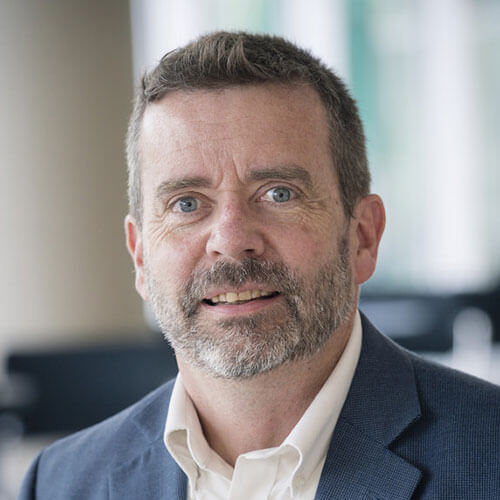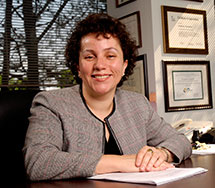When the I-20/59 corridor through Birmingham was demolished and rebuilt over a period of 12 months in 2019, travel became a nightmare for thousands of truckers, daily commuters and other travelers. But where most people saw chaos and frustration, a pair of UAB researchers found inspiration.
 When the I-20/59 corridor was dismantled and rebuilt over a 12-month period in 2019, it disrupted travel for more than 150,000 vehicles per day. UAB engineers are using data from that project to gain a better understanding of how drivers adapted.UAB Professors Andrew Sullivan and Virginia Sisiopiku, Ph.D., specialize in transportation engineering. For them, the massive effort to reroute traffic away from such a major artery presented an opportunity to re-examine how 21st-century drivers are consuming information regarding detours.
When the I-20/59 corridor was dismantled and rebuilt over a 12-month period in 2019, it disrupted travel for more than 150,000 vehicles per day. UAB engineers are using data from that project to gain a better understanding of how drivers adapted.UAB Professors Andrew Sullivan and Virginia Sisiopiku, Ph.D., specialize in transportation engineering. For them, the massive effort to reroute traffic away from such a major artery presented an opportunity to re-examine how 21st-century drivers are consuming information regarding detours.
“A 1.5-mile segment of interstate that carries 160,000 vehicles per day was closed for one year, so the impacts were regional,” Sullivan said of the Birmingham project. “Local agencies put out a lot of information about detour routes, but it wasn’t clear how that information was being used. We want to better understand how motorists make detour decisions in this era of in-vehicle route guidance and multiple information sources.”
To that end, Sullivan and Sisiopiku are working to create a methodology for detour-route planning that will include recommendations for best practices for long-term construction.
 Andrew Sullivan Using the I-20/59 project as a case study, Sullivan and Sisiopiku will compare the plans and communication strategies used by the Alabama Department of Transportation (ALDOT) and the City of Birmingham to the actual routes used by motorists.
Andrew Sullivan Using the I-20/59 project as a case study, Sullivan and Sisiopiku will compare the plans and communication strategies used by the Alabama Department of Transportation (ALDOT) and the City of Birmingham to the actual routes used by motorists.
To do this, the engineers are pulling information from multiple sources. In addition to administering a motorist survey, they are also using traffic counts provided by ALDOT and travel-speed data collected from mobile phones. All that data combined should give a fair indication of how closely drivers adhered to recommended detour routes.
The resulting picture should help guide future strategies—not only for planning detour routes but also for planning which channels to use to deliver information to particular audiences.
 Virginia Sisiopiku“We are already seeing that strategies used for commercial vehicles may need to be different than those used for private motorists,” Sullivan said. “The goal is to help managing agencies allocate their limited resources as efficiently as they can.”
Virginia Sisiopiku“We are already seeing that strategies used for commercial vehicles may need to be different than those used for private motorists,” Sullivan said. “The goal is to help managing agencies allocate their limited resources as efficiently as they can.”
The project is being conducted through the Southeastern Transportation Research, Innovation, Development and Education (STRIDE) Center. UAB is one of nine STRIDE partner institutions. Additional funding is provided by ALDOT.
More information about this project or similar transportation studies can be found on the UAB TREND Lab web site.